I found in my work with ANTLR4 it was easier to divide my grammer into a seperate lexer and Parser. This has it's own learning curve. But the result is that I think about "Tokens" being fed to the parser. And I can use grun -tokens to see that my tokens are being recognized by the lexer before they get to the parser. I'm still an ANTLR4 newbie so maybe 2 weeks ahead of your on the learning curve after playing with ANTLR4 off and on for a few years.
So in my Grammer file I would have
myLexer.g4:
AT: 'at';
IDENTIFIER: [a-ZA-Z]+;
INT: -?[0-9]+;
myParser.g4:
access: IDENTIFIER AT INT;
Beware after you do:
antlr4 myLexer.g4
antlr4 myParser.g4
javac *.java
The GRUN command to run your parser is not:
grun myParser -tokens access infile
but
grun my -tokens access infile
Adding "Parser" to the name always kills me when I split my grammer into seperate lexer/parser g4 files. I typicaly Use ANTLR4 get mediocre at at, then don't use it for 8-12 months and run into the same issues where I come here to Stack Overflow to get myself back on track.
This will show up in the grun -tokens as an "AT" token specifically. But as mentioned in the comments the AT needs to come first.
Any case where two rules can match "AT:'at'" is also a legal IDENTIFIER: [a-ZA-Z]+ put the smaller match first.
ALSO I tend to avoid the * greedy matches and use the non greedy ? matches, even though I don't quite have my head around the specific mechanics of how ANTLR4 distinguishes between '' and '*?'. Future study for this student.
The other trick you can use is to use parser modes. I think the maintence overhead and complexity of parser modes is a bit high, but they can provide a work-around hack to solve a problem until you can get your head around a "proper" parsing solution. Thats how I use them today. A crutch to get my problem solved and I have //TODO -I need to fix this comments in my grammar.
So if your parsing gets more complex, you could try lexer modes, but I think they are a risky crutch... and you can get far down a time sink rabbit hole with them. (I think I'm half way down one now).
But I find ANTLR4 is a wonderful parsing tool... although I think I may have been better off just hardcoding 'C'/Perl parsers than learning ANTLR4. The end result I'm finding is a grammar that can be more powerful I think than my falling back to my old 'C'/'Perl' brute force token readers. And it's orders of magnitude more productive than trying Lexx/Yacc was in the old days. I never got far enough down that path to consider them useful tools. ANTLR4 has been way more useful.
